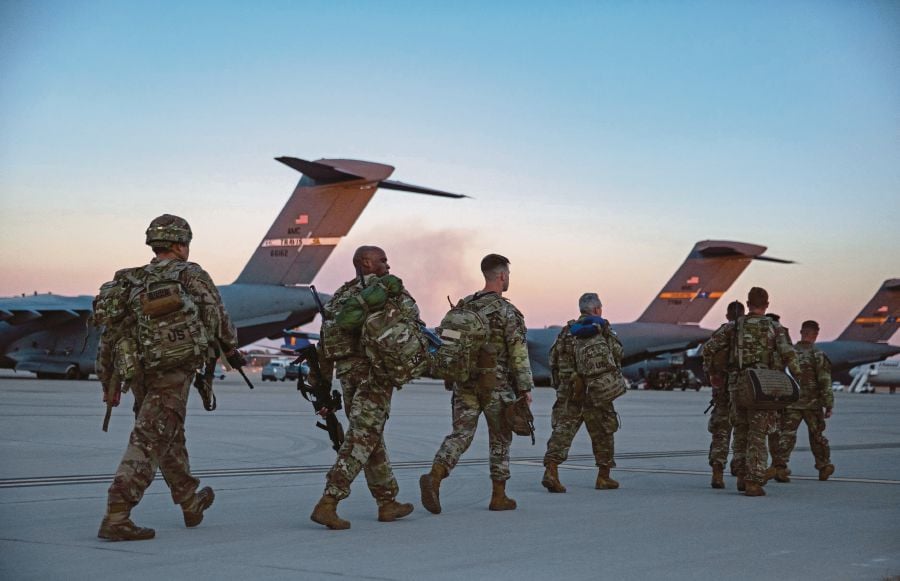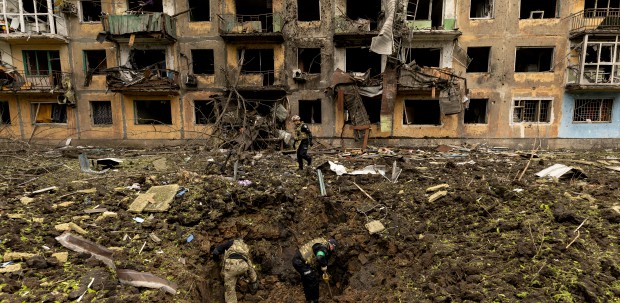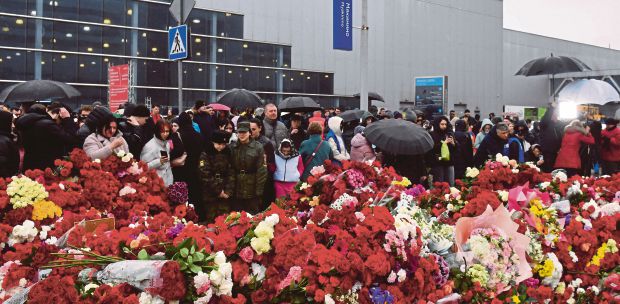IN recent months, the global information space has faced a media campaign unprecedented in its scale to convince the world that Russia is preparing an "invasion" on the territory of Ukraine.
I would like to express my gratitude to the New Straits Times and the many Malaysian journalists and political analysts, whose publications indicate that there is a generally correct understanding of the events taking place in Europe.
Under the veil of propaganda, the United States and its allies are pushing Ukraine towards aggression against the self-proclaimed republics of Donbass and Lugansk.
I fully share the idea by my esteemed colleagues, US Ambassador B. McFeeters and Ambassador and Head of the European Union Mission M. Rokas that international problems can only be resolved through diplomacy.
However, diplomacy is a serious and thoughtful process that requires taking all factors into account, including the concerns of the opponent.
The Russian leadership, including President Vladimir Putin, has repeatedly assured Western partners that Russia stands for resolving the internal Ukrainian crisis on the basis of the Minsk agreements.
Russia has no intention of attacking anyone and insists on legally binding security guarantees. We have received no clear answer to our specific proposals to this effect.
Furthermore, we cannot trust the verbal assurances of our partners, who prefer not to recall their promise in the late 1980s and early 1990s that the North Atlantic Treaty Organisation (Nato) would not move an inch eastwards.
We have been voicing our concerns in this area since the mid-2000s.
However, all these years, Nato has continued to get closer to Russia and deploy strike weapons near our country borders. Does anyone have any doubts about who they are targeting?
The deployment of US missiles in Ukraine will enable them to reach Moscow and the central regions of Russia in two to three minutes.
In response to our natural security concerns, we are again threatened with sanctions and other penalties. Our partners, unfortunately, have forgotten how to conduct an equal and mutually respectful dialogue.
Instead, they threaten "punishments". I would like to emphasise that we are talking about a military threat to the existence of our state.
During the Cold War, Nato could probably be considered a defense alliance.
However, today Nato is an aggressive military bloc, which forcibly establishes its hegemony in various regions under the guise of "rules-based order".
Note the term "rules" and not "international law". Examples of this are the destruction of Yugoslavia, Libya and Iraq.
We cannot accept that while there is the United Nations Charter and universally recognised fundamental international legal instruments and mechanisms, someone will set some kind of "rules" for their own benefit.
The reference to the South China Sea area by respected ambassadors draws attention.
My understanding is that this is a signal to Asean countries that the US, in its confrontation with China, could make the grouping hostage to its ambitions.
Amusingly, all the hype in the Western press leaves a strange impression.
The Ukrainian leadership calls for calm and seems to genuinely not understand why its partners are throwing a tantrum, evacuating embassy personnel and urging their citizens to leave Ukraine, leading us to the conclusion that Nato is preparing something without informing Ukraine.
It's obvious that American "friends of Kyiv" are prepared to sacrifice Ukraine in order to bring Nato military infrastructure even closer to Russia's borders.
Ukraine, unfortunately, is a bargaining chip in this game.
Specific dates for the "attack" are mentioned with reference to intelligence data.
In this regard, I would like to ask about the intelligence data on the weapons of mass destruction in Iraq. Have you found the weapons yet?
When the West talks about the 100,000-strong Russian troops near Ukraine's borders, they fail to mention the almost 120,000-strong Ukrainian troops including hundreds, if not thousands of American instructors, British, Canadian, and other special forces.
At the same time, more than US$2 billion worth of weapons have been delivered there. Against this background, any talk of imminent war is, in fact, an incitement.
Lasting peace in Europe is possible only on the basis of the principle of common and indivisible security. It cannot be built at the expense of the security of Russia and others.
Of course, this is provided that Ukraine implements the Minsk agreements. We shall continue to urge our partners to engage in a serious dialogue.
Soon our troops, which are conducting exercises in Belarus, as well as the Black Sea, will return to their bases. It will be interesting to see what the Western media will write about this.
Would they say that Russia "trembled" before the "collective determination" of the West?
In conclusion, I would like to touch upon the right of Ukraine, like any other country, to choose its partners and alliances.
However, by joining Nato, Ukraine will lose some of its sovereignty and will be subject to orders from Washington.
It's good to remember that.
The writer is Russian ambassador to Malaysia





